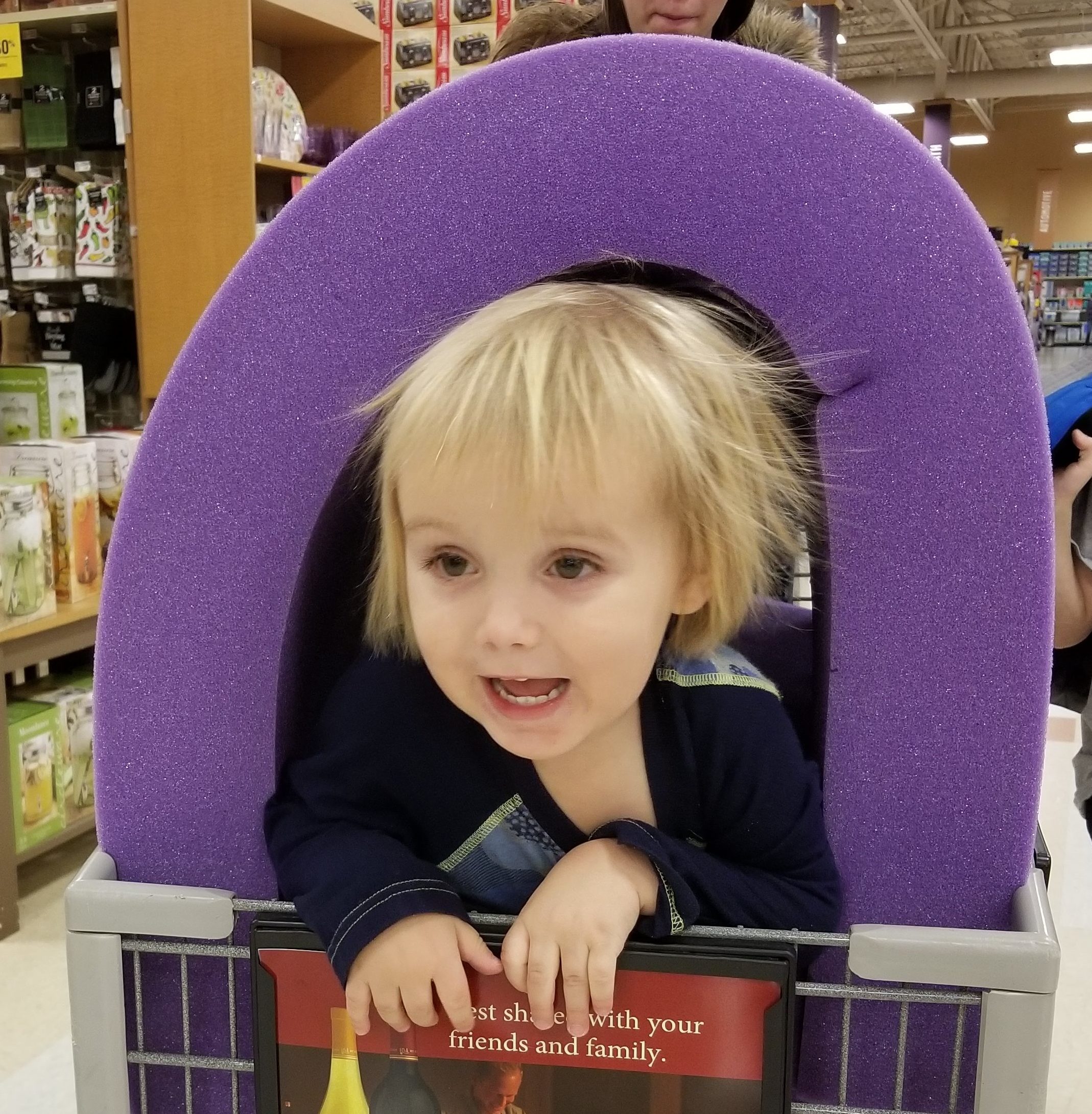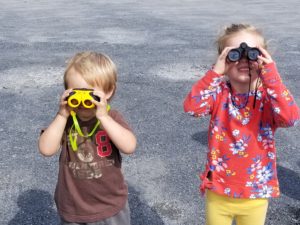You were so excited when your new child was born. The tiny baby was helpless, yet instinctively knew how to ask for help. One little cry sent you running to the rescue. After a couple months that sweet baby was able to do more things, hold toys and begin to play, focus on objects or people around the room, and make noise in an attempt to communicate. A few months later that little one began to sit up, roll around and scoot across the floor. It wasn’t long before this growing child got up on two knees and started to crawl, and then got vertical to walk. Those little babbles became mumbles, which turned into words and soon became sentences.
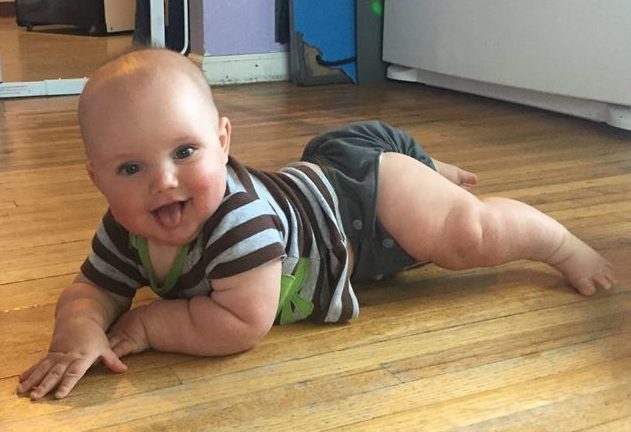
You, as a parent, had to teach this little baby to crawl. You had them watch you as you explained how one knee moves at a time with the alternating hand. They had their turn to practice but didn’t get it quite right. You showed them again and helped them move their knees and hands in the correct way until they got it.
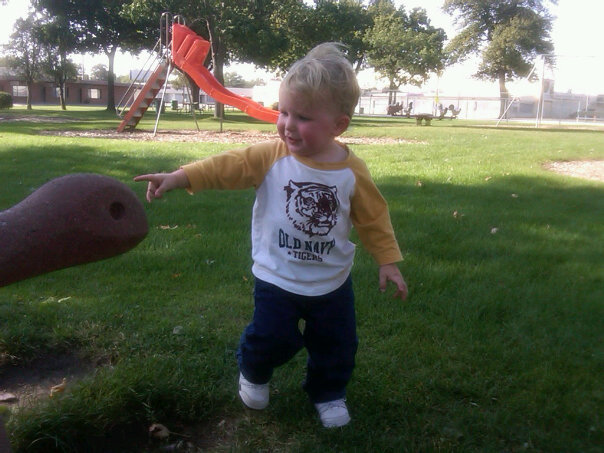
Then you taught them language. You started with nouns using flashcards. You had a poster explaining how to add an “s” sound to the end to make it plural. Then you moved onto verbs. Before you knew it, this kid was communicating.
What? You didn’t do that? They did it on their own? You’re telling me you have a child prodigy? No? Just a normal kid? Oh, a little above average, but still normal? How in the world did your child learn to do all these things without any instruction? You didn’t have to send your baby to school to learn an entire language, they just picked it up by hearing others talk?
I know, this all sounds silly but I’m trying to prove a point that babies and children are capable of learning so many things. They just mastered walking and talking in a few short years all by themselves. They went from zero knowledge of anything and now can communicate in a new language, understand the culture and read social cues. For several years children learn everything they need to just by being around people and playing.
But after a few years many parents forget what their child is capable of and decide that if there is going to be anymore learning this child now needs to taught. And not taught through play, which is how they learn best, but through books, and direct instruction.
My question for you is, What is so important for your child to know, at this age, that you need to take them away from play, to teach them? Now think about it…do they really need to know that now? Can it wait? What if your child doesn’t recognize numbers by 4 years old? What will happen? Do they need to use numbers now? What if they didn’t learn to read at 5 years old, can they learn at 8 years? Is there something important they need to read right now? What if they can’t write their name yet? That’s probably okay too because they will be living at home another 10 years and you’ll be there to help them. And by the time they move out, they will have mastered it, I promise.
My next question is…don’t forget, this is the same child that just taught themselves an entire language on their own, does your child need to be taught this? Whatever it is, colors, reading, writing, etc., can they learn it through play? When children play, they absorb information. Do you think a child that has books to play with, look at, and be read to, won’t learn to read? They will. At first they will look at pictures, and then they’ll notice the words and letters. They may ask about certain letters. They’ll notice patterns or letters that continue to show up and, just as they learned a spoken language, they will decipher the code of reading.
So yes, I am saying, skip the preschool. Put the workbooks and flashcards away and let your child play.
Here is an experiment. Go to the store and buy a board game (for your child’s age range) that your child has never seen. Take it home and show them how to play. Don’t talk down to them. Explain it as you would to an adult. The game pieces can be called pawns and instead of saying put the cards here, say put them in the discard pile, etc. If your child enjoys the game, play it with them for several days. After they are good at it, invite someone new to play and let your child teach them how to play. Observe all that your child has learned, they are able to follow the rules (mostly), take turns (most of the time), their language has probably increased and all they did was play.
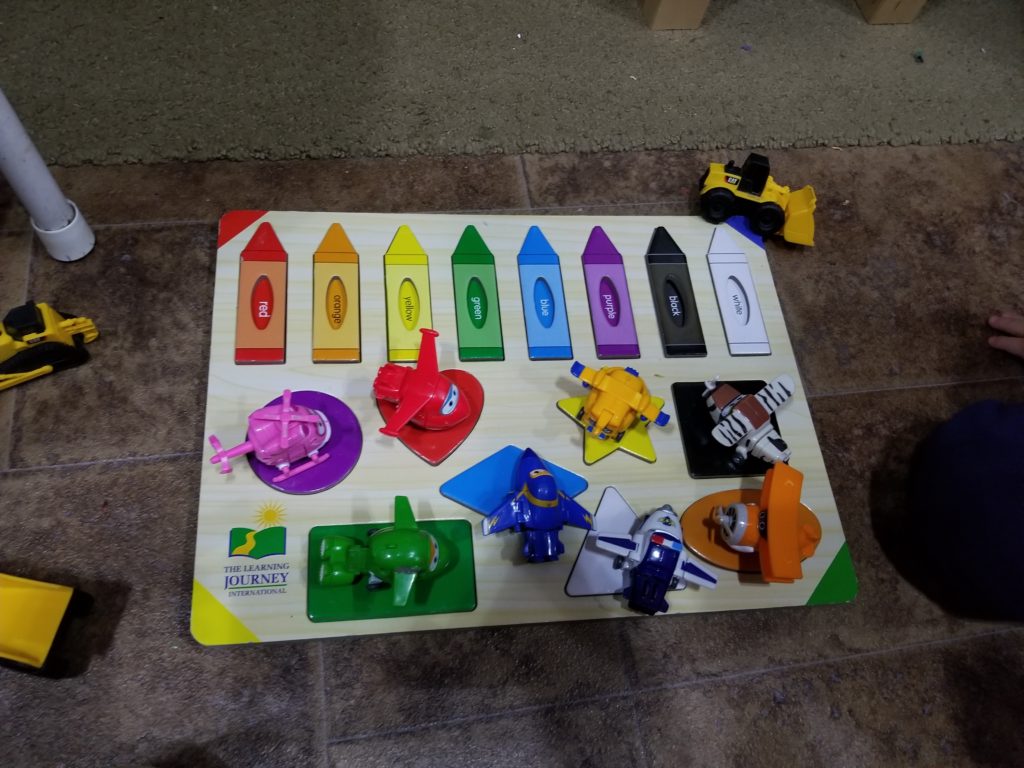
So let the play continue, don’t turn it into school. Dig in the sand, add some water and build rivers, dams, caves, and mountains. Build block towers, use rectangles, squares and cylinders. Go to the library and check out how the books are organized and teach your child to search for books on the computer. Build a fort out of couch cushions and blankets. Stay up late and look at the stars and the moon or go to a get together with a local stargazing group. Pretend you are wild animals and hide in the trees or some tall grass. Do some easy woodworking projects. Make playdough or slime. Let them help you cook, young kids are great at adding ingredients and stiring. Talk about what time things happen in your daily schedule. Observe the weather and the seasons. Celebrate holidays. There are so many things you can do.
Through all of these activities, children will increase their vocabulary. They’ll work on small and large motor skills. They’ll be exposed to shapes, colors, numbers and letters. They’ll be aware of time of day and times of the year. They’ll learn to share, take turns, and think of others. They’ll be aware of their surroundings and learn how to act in different situations. Your young child will grow into a big kid ready to take on the world, full of knowledge and confidence. So all you have to do is let them play.
